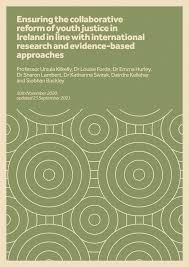David C. Pyrooz
This final summary overview describes a research project aimed at evaluating a gang intervention program, led by the Gang Reduction Initiative of Denver (GRID), which has historically coordinated around two dozen strategies with partners emphasizing prevention, intervention, and suppression. The focus of GRID’s efforts is their use of juvenile and adult multidisciplinary teams (MDT) to facilitate coordination and individual case management of gang-involved youth who have been referred for services. A process and impact evaluation was undertaken between 2019 and 2022, and the project was pre-registered on the Open Science Framework before data collection. The evaluation was guided by two core questions: if the MDT-based approach achieves its stated purpose of providing comprehensive, coordinated services to gang members with fidelity; and if the MDT-based approach achieves its stated goals of producing disengagement from gangs and desistence from crime. The first question was the focus of the process evaluation, and the second question was the focus of the impact evaluation. This report provides details about the evaluation’s methodology and informs that evaluation findings were mixed. Findings showed: there is clear evidence, from the process evaluation, that GRID delivered a range of high-quality services with efficacy; GRID clients were nearly 70 percent less likely to engage in violence than individuals in the control group; and GRID clients were more than three times more likely to claim a current gang status than control group participants.
Boulder, CO: Institute of Behavioral Science , University of Colorado, 2023. 28p.



